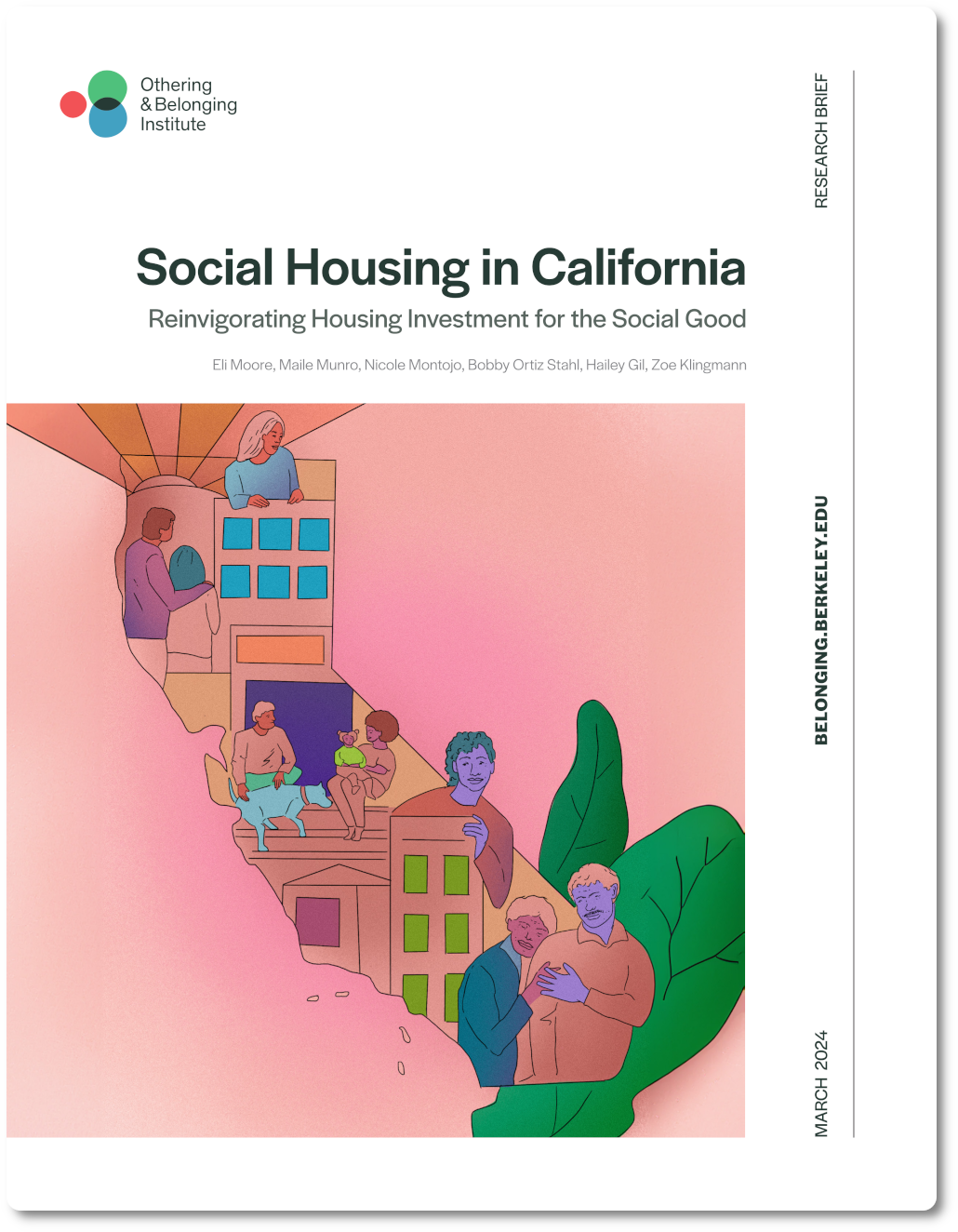Social housing has come to encompass a variety of programs and financing schemes, but all fundamentally move away from a reliance on private, for-profit motives driving housing insecurity. In 2023, California will launch a study of social housing in the state, and evaluate pathways for reimagining public investments in housing development.
This report explores three principles of social housing and tracks policy mechanisms that serve to 1) protect the social good, 2) advance social and racial equity, and 3) secure participatory governance for residents. Our first principle for analysis, Protecting Social Good, focuses on understanding how housing investments and ownership mechanisms serve a social good and protect long-term affordability. The second principle, Social and Racial Equity, explores how social housing incorporates targeted strategies addressing the unique barriers facing marginalized groups. Our third principle for analysis, Participatory Governance, considers processes for resident participation, rights, and responsibilities. Tenant protections exemplify the way all three of these dimensions of social housing intersect: serving the need to limit profit seeking, protecting the most marginalized groups, and providing the security required for participation.
Together, these three principles reimagine the role of public investment in housing infrastructure and invite stakeholders across California to operationalize housing as a human right.






